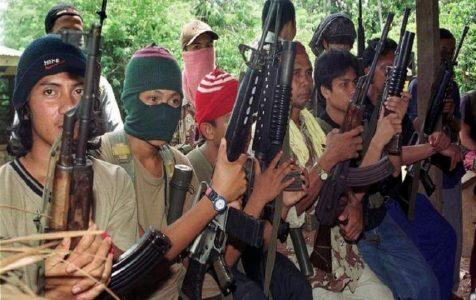
Abu Sayyaf terrorists abduct engineer on the island province of Sulu
Heavily-armed members of the ISIS-linked Abu Sayyaf terror group kidnapped a government engineer while waiting for a ride near a police station on the island province of Sulu in restive Mindanao, police confirmed on Thursday.
Senior Superintendent Mario Buyucan, the provincial police chief, identified the victim as Enrico Nee of the Department of Public Workks and Highways of the Autonomous Region in Muslim Mindanao (ARMM) and assigned to Sulu.
Buyucan was waiting for a ride on his way to office in a “barangay” (village) in the capital of Jolo, Sulu when heavily armed terrorists aboard a vehicle kidnapped him at gunpoint on Wednesday morning.
Ironically, Buyucan admitted the abduction occurred about 20 meters away from Nee’s house and 15 metres away from a police outpost.
“The terrorists forced the victim into their waiting vehicle and fled toward the town of Patikul,” said Buyucan, adding the abductors have yet to contact Nee’s family.
Nee’s kidnapping also occurred despite the ongoing “seek and destroy” operation launched by the military against the Abu Sayyaf on orders of President Rodrigo “Rody” Duterte for their unabated kidnap-for-ransom activities.
The military also blamed the Abu Sayyaf and the Maute Group, both of which have pledged allegiance to the Daesh extremists in the Middle East, for the siege on Marawi, the capital city of Lanao del Sur on May 23.
With Nee’s abduction, the terrorists are now holding as hostage five Filipinos, three Indonesian sailors, a Vietnamese fishing boat captain and a Dutch national, according to the military.
But Brigadier General Cirilito Sobejana, the Task Force Sulu commander, reported they already recovered the getaway vehicle even as he assured they already launched pursuit operations against the abductors.
“We will not stop;…until the victim (Nee) and all the other victims of the Abu Sayyaf,” Sobejano vowed.
The Abu Sayyaf, meaning “bearer of the sword,” has gained notoriety through a spate of kidnap-for-ransom cases that have often been marred by the beheading of their foreign and Filipino hostages.
Regional and Philippine security experts have also confirmed the link of the Abu Sayyaf to the global Al Qaeda terror network through the Indonesia-based Jemaah Islamiyah extremists.
Source: Gulf Today





